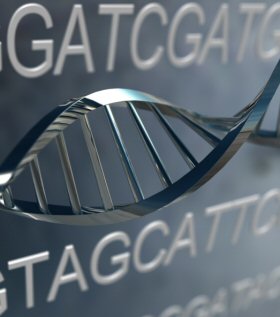 A new University of California, Los Angeles (UCLA) AIDS Institute study contends that gene therapy can be developed as a safe and active technique to combat HIV. The study, appearing in Nature Medicine, suggests that cell-delivered gene transfer can be a once-only treatment that reduces viral load, preserves the immune system and avoids lifelong antiretroviral therapy.
A new University of California, Los Angeles (UCLA) AIDS Institute study contends that gene therapy can be developed as a safe and active technique to combat HIV. The study, appearing in Nature Medicine, suggests that cell-delivered gene transfer can be a once-only treatment that reduces viral load, preserves the immune system and avoids lifelong antiretroviral therapy. "It is the first randomized controlled study done with gene therapy in HIV," said lead investigator Dr. Ronald Mitsuyasu. "What we were able to demonstrate was that the patients who received the gene-modified cells had a somewhat better suppression of their HIV viral replication after discontinuing their highly active antiretroviral therapy (HAART) treatment, compared with the controls."
The study was the first randomized, double-blind, placebo-controlled gene-transfer clinical trial and involved 74 HIV-positive adults. The patients received their own blood stem cells, either untreated or modified to carry a molecule called OZ1, which prevents viral replication by targeting a key HIV gene. OZ1 was safe, causing no adverse effects over the course of the 100-week trial.
At the end-point, the difference in viral load between the OZ1 and placebo group at weeks seven and eight, after they had stopped HAART treatment, was not statistically significant. But other viral parameters did demonstrate better HIV suppression and improvement in the counts of CD4 lymphocytes - the cell population that is depleted by HIV.
The technique still needs to be developed further and perfected, Mitsuyasu stressed. "Part of the reason that we didn't see a larger effect is that the persistence of the anti-HIV gene in the patient's blood was not as long as we would have liked," he explained. "We need to find better ways to get the genes into the patients and maintain them, which could include using different vectors to get the gene into the cells or conditioning the patients prior to gene transfer."
Still, the results indicate that gene therapy could eventually be a useful tool in the fight against AIDS, said study co-author Dr. Thomas C. Merigan. He agrees that more needs to be done to perfect it. "But in the way we set up the trial with randomized placebo controls, we could dissect out that there was a positive effect in patients who had the gene successfully installed," he said. "This could be a first step in developing a new method of controlling a chronic infectious disease."
Related:
Natural Gene Mutation Protects HIV-Infected Patients
AIDS/HIV - Treatment Research
Source: University of California, Los Angeles





